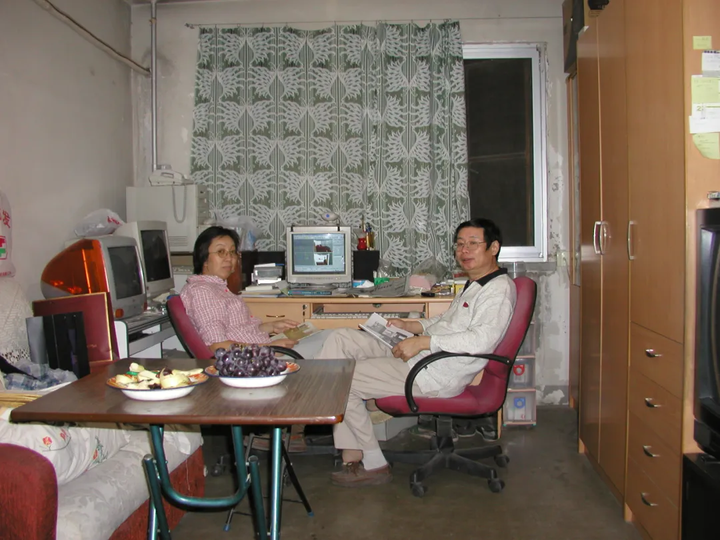Why Chinese Tech Workers Are Choosing New Zealand: A Journey from China’s IT Workers to a New Life Abroad

Staff Writer: Yiyi Xie
Image Source: Supplied
In recent years, New Zealand seems to have become a landing spot for tech workers leaving big Chinese companies. According to the 2021 China Programmer Salary and Work Status Survey Report by the China Internet Network Information Center, the majority of Chinese programmers (42.5%) are between the ages of 25-29, while only 9.4% are aged 35 and above.

Despite offering higher salaries and better career prospects compared to other industries, many IT professionals are struggling with the infamous “996” work culture and the “35-year-old crisis.” As major companies begin to resemble “big factories,” with fierce competition among graduates to get in, experienced programmers are opting to leave.
Tired of workplace stress and burnout, many are now exploring opportunities abroad. The allure of better salaries, benefits, and work environments overseas has prompted a wave of tech professionals to migrate. One of them is Yosgi, a 29-year-old Chinese IT worker.
From Self-Taught Programmer to Senior Engineer in New Zealand
Before meeting Yosgi in Auckland, we had already chatted briefly online. He previously spent six years working in China’s IT industry and now holds a senior front-end engineer position at a New Zealand-based IT company.

“I’m more of an introvert,” Yosgi said, as we arranged to meet at his home for the interview.
In his soft-spoken manner, Yosgi shared his journey: he didn’t start his career in computer science. Instead, he taught himself the basics of front-end development in just a month and a half to break into the field. Back in 2016, IT jobs in China were relatively easier to land. That was the start of his career in tech, working for companies like Dahua and Siemens in Hangzhou, where he gained valuable experience over the years.

“Companies won’t teach you much. In this industry, you’re expected to learn on your own,” Yosgi reflected. He has spent the past six years continuously honing his skills in front-end developing.
“In China, Work Becomes Your Entire Life”
When talking about the work culture in China, Yosgi immediately brought up the word “competition.” From startups to major tech firms, work is rarely easy, and the pressure has only increased across the IT industry. Even when he moved to a multinational corporation like Siemens, known for its work-life balance, he still found that his life revolved around work.

“There’s no life, just work. Even though we finished at 5 p.m., by the time I got home, it was already 7 p.m. After dinner, the day’s practically over. Plus, you still need to set aside time to learn new things. Everyone else is learning, so you have to keep up,” he explained.
Yosgi felt this was more of an industry-wide problem rather than an issue with one company. While Siemens was more relaxed compared to other companies, he still found himself longing for a change.
“That’s when I thought, if I’m already working for a multinational, why not take the next step and go overseas? I wanted a different environment.”
This was the first time Yosgi seriously considered working abroad, even though he had already bought a home in Hangzhou by then.
Fast-Track Migration: One Year to Permanent Residency
After doing some online research, Yosgi began sending out resumes to companies around the world. At the time, many businesses had adopted remote work due to the pandemic, so his interviews were all conducted online. Thanks to his extensive experience in the field, he received several job offers from companies in Germany and Canada. However, after weighing his options, he decided not to accept those positions.
In May 2022, Yosgi saw that New Zealand had opened its Working Holiday Visa (WHV) to applicants from mainland China. He quickly applied through an agency and secured a spot. By August, he had quit his job and arrived in New Zealand, diving headfirst into the job hunt.
Yosgi was focused on finding a front-end development position. “I had a friend on Xiaohongshu who found a job this way, so he told me to try the same thing,” he recalled.

Using various channels—submitting resumes, working with recruiters, and getting referrals from friends—Yosgi spent the next month interviewing with several companies in Auckland.
When asked if the job market was competitive, Yosgi jokingly replied, “There’s no competition at all.” At the time, New Zealand was in desperate need of experienced IT engineers. After a little over a month, he received multiple offers with salaries that met the country’s Green List immigration requirements of NZD 120,000 or more per year.
He chose one of the offers and started his career in New Zealand. “Back then, I was still on a Working Holiday Visa. Later, my company became an Accredited Employer and helped me transition to a work visa,” he said. By the end of 2022, Yosgi had submitted his residency application, which has since been approved. It took him just one year from arriving to becoming a New Zealand resident.
A More Relaxed Job with Remote Work
Yosgi is satisfied with his current job. Although his salary is roughly the same as what he earned in China, his workload is lighter, and he primarily works from home. As the only Asian employee at his company, it took some time for him to adjust to the slower work pace in New Zealand.

“At first, I went to the office, but later I realized no one else was going, and no one was monitoring me, so I stopped going too,” he laughed.
His company assigns tasks that he completes independently, with minimal supervision. “Someone contacts me maybe once every two weeks, and I just manage my work on my own. Compared to China, the workload is much lighter,” Yosgi said.
This lifestyle has given him plenty of time to enjoy life outside of work. He’s made the most of his time in Auckland, from barbecues in local parks to attempting to pass his driving test.
"In Overseas Jobs, Language Matters More Than Skills"
Though his journey to residency was relatively smooth, Yosgi acknowledges that the situation has changed.
“I came at the best time—just lucky, I guess. Now, it’s a lot harder to secure a Working Holiday Visa or find jobs here due to the increased competition.”

His advice for those looking to move abroad for IT work is to prioritize language skills. “In overseas jobs, language is more important than technical ability,” he emphasized. Without strong English skills, even the most technically proficient workers will struggle to stand out in the job market. He also stressed the importance of interview techniques and knowing how to present oneself effectively to potential employers.
Lastly, Yosgi noted that while the job market may be tough now, it’s closely tied to global economic cycles. He believes things will improve by 2024 or 2025, with more opportunities returning to New Zealand.



